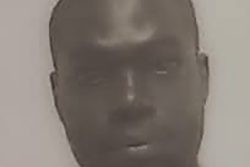Dear Editor,
I listened with increasingly rapt attention as our President addressed the Police Officers’ Annual Conference on the subject of drug trafficking and its attendant criminality in our country.
When he castigated the US for lecturing us while hopelessly failing themselves to confront the flow of narcotics into the US and onto the streets of their cities and the flow of guns out of the US and on to our streets, it brought back memories.
It reminded me of when I was asked many years ago on the NBC Morning Show at the time of Jonestown when it fell to me to speak for Guyana:
“Mr Minister, how do you explain your government allowing all these guns into your country”? I responded: “How do you explain your country allowing all those guns out of Miami?”
The President is, of course, right. America has allowed the drug trade and the profits from it to grow and flourish within its own borders to the point where it’s out of control. Pointing their fingers at countries like Guyana is pointless. The Americans must put their own house in order before criticizing countries like ours with limited resources who are, essentially, victims of this trade.
Our President is, however, on much weaker ground when he blames the Americans for wanting to dictate to us on how we should enforce the law against the narco lords here, rather than work in partnership with us.
Partnership involves trust and respect, particularly in confronting organized crime and drug trafficking across international borders. How much trust, never mind respect, have we earned as a country when our criminal justice system has permitted a confessed drug lord and multifaceted murderer like Roger Khan to function with impunity for so long within our borders and every day the trade in narcotics continues unabated and virtually unchallenged?
Since the appointment of Commissioner Henry Greene, our police, with the full support of government, opposition and civil society, have most certainly earned respect in taking on and overcoming organized criminal gangs who threatened our national stability. The question, nevertheless, remains, why has the US criminal justice system been able to assemble sufficient evidence against Khan for crimes committed in Guyana to cause him to plea bargain, when in Guyana he remained untouched? It should not be surprising, therefore, if the US law enforcement agencies do not trust ours.
Our President lauded the “plea bargaining” system under which Khan has escaped a life sentence for his crimes as beneficial to crime prevention by facilitating disclosure of vital information to the police. Perhaps, but, because Khan was able to bargain a plea, the evidence which this case might otherwise have brought to light in court about those in Guyana who shared in Khan’s criminal enterprise will be forever lost to Guyana. Unless, of course, the US law enforcement agencies are willing to share it with ours. I am sure it is not lost on our President that for this to happen, there must be trust.
Yours faithfully,
Kit Nascimento






